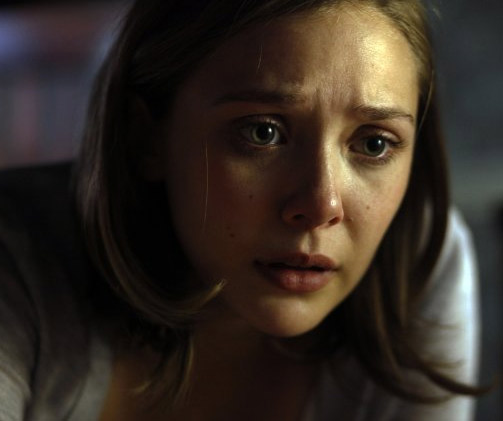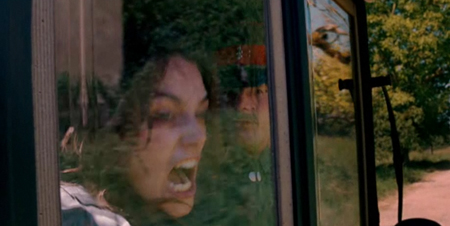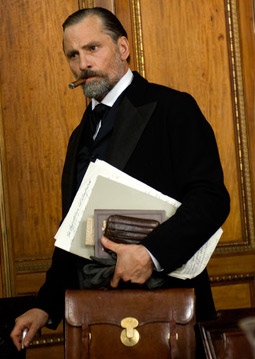NYFF: "Miss Bala" Blood, Guns, and Tiaras
 Friday, September 30, 2011 at 11:00AM
Friday, September 30, 2011 at 11:00AM Serious Film's Michael C pleased to report he's viewed his first, but hopefully not last, knockout, must-see movie of the New York Film Festival.

According to director Gerardo Naranjo, some critics have accused his drug war thriller Miss Bala of glamorizing the life of cartel gang members. I didn’t get a chance to ask a question at the Q & A, but if I had it might have been, “What planet are these critics on, and how do they get movies way out there?” Miss Bala is the answer for every person wearing a Scarface t-shirt. It glamorizes the business of drugs about as much as Requiem for a Dream glamorizes the use of them.
Miss Bala is a thriller that manages to generate incredible suspense despite upending genre conventions at every turn. It is the tale of Laura, an aspiring beauty queen, who through incredibly bad luck finds herself sucked into the Hell that is Mexico’s drug wars. Naranjo sticks to the point of view of his naïve, overwhelmed protagonist throughout. It’s a reversal of the Hitchcock method of suspense through letting the audience know as much as possible since at any moment Laura has little idea what the motives of her captors are and what role she is plays in their schemes. Unlike 99% of thrillers the audience isn't trying along with Laura to outwit her tormentors, but rather to scrape enough information together to survive.
 Utilizing riveting, hold-your-breath long takes that recall fellow countryman Alfonso Cuaron, Naranjo work behind the camera is a breakthrough to make film lovers sit up and take notice. Bala deserves comparison with 4 Months, 3 Weeks, 2 Days for its depiction of societal ills through straightforward gut punch realism without political sermonizing or a trace of movie-movie bullshit. It’s a harrowing experience, but also a compulsively watchable one.
Utilizing riveting, hold-your-breath long takes that recall fellow countryman Alfonso Cuaron, Naranjo work behind the camera is a breakthrough to make film lovers sit up and take notice. Bala deserves comparison with 4 Months, 3 Weeks, 2 Days for its depiction of societal ills through straightforward gut punch realism without political sermonizing or a trace of movie-movie bullshit. It’s a harrowing experience, but also a compulsively watchable one.
Naranjo is aided by Stephanie Sigman, who delivers a performance of beautiful vulnerability and well-modulated desperation as Laura. Often the director does well to simply rest the camera on her face and watch as her expressive doe eyes absorb the seemingly endless string of horrors.
Miss Bala is Mexico’s submission for the foreign language Oscar... which is gutsy on their part since I've seen movies about the Vietnam War that depict a safer, more stable country. Oscar's foreign language branch, like its doc branch, is prone to wild, inexplicable omissions, so I won’t make any predictions, but I will say this: I would be shocked if five better, more powerful films are in contention this year.
 Gerardo Naranjo,
Gerardo Naranjo,  Mexico,
Mexico,  Miss Bala,
Miss Bala,  NYFF,
NYFF,  Oscars (11),
Oscars (11),  foreign films
foreign films 







